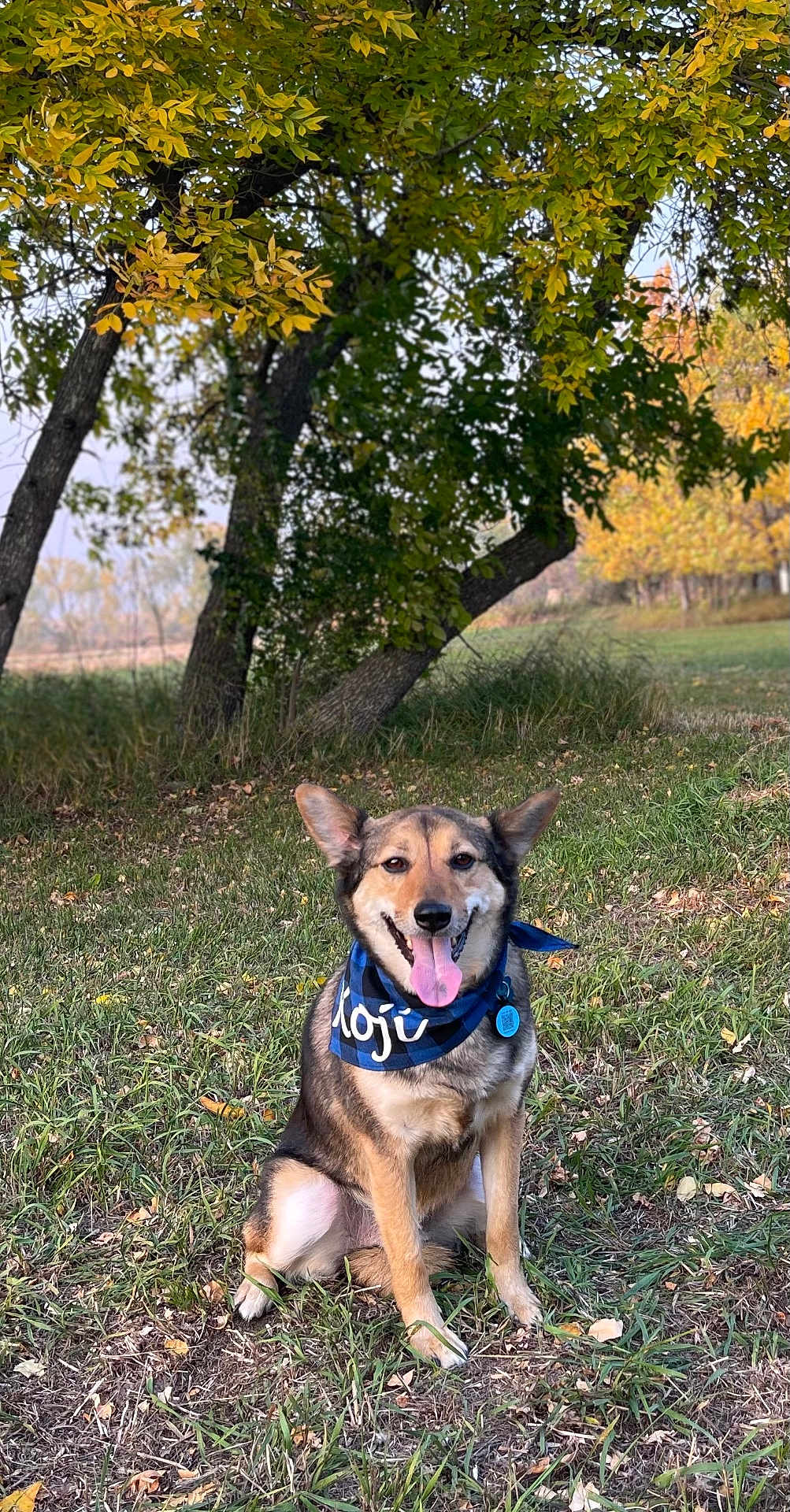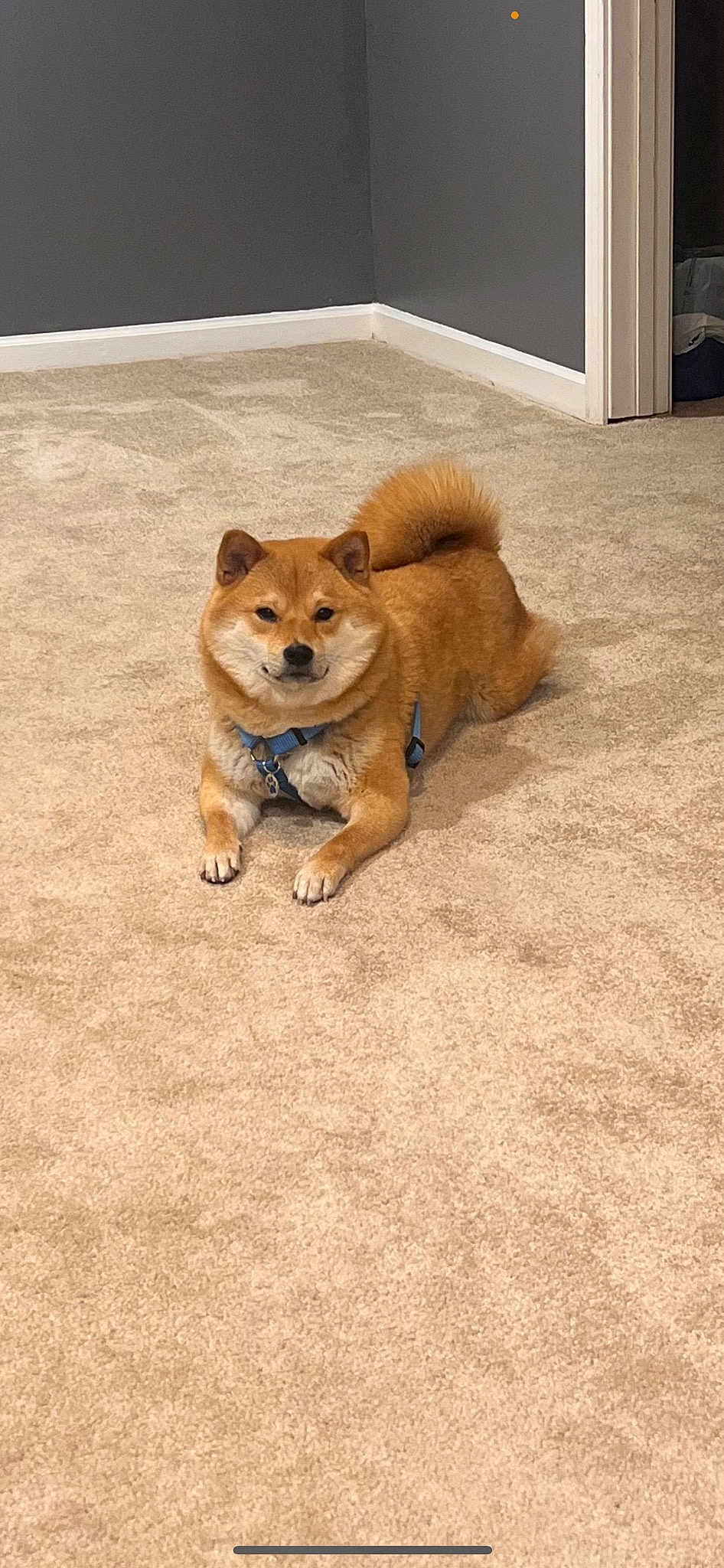
"The spirited Shiba Inu, often described as a big dog in a small body, traces its lineage back to ancient Japan. With its fox-like appearance and charismatic demeanor, it has captured the hearts of dog enthusiasts worldwide."
Personality and Behavior of the Shiba Inu
Known for its keen and agile nature, the Shiba Inu is often celebrated as one of the most independent and spirited dog breeds. This breed tends to possess a confident, spirited, and bold personality, which makes them excellent companions for those who appreciate character-rich pets. Shiba Inus are also notoriously independent, sometimes exhibiting a cat-like demeanor in their interactions with humans and other pets.
The Shiba Inu's alertness and intelligence make it a vigilant watchdog. They tend to be reserved with strangers, yet loyal and affectionate to their families. This behavior can be traced back to their origins as hunting dogs, selectively bred for their keen instincts and self-reliance.
Training a Shiba Inu can be both rewarding and challenging. Their independence sometimes translates to a stubborn streak, necessitating patient and consistent training methods. Positive reinforcement works best, helping to harness their intelligence and eagerness to please when motivated by treats or praise.
In a family setting, Shiba Inus often thrive when their boundaries and hierarchies are clearly established. They get along well with children and other pets if socialized properly from a young age, though their strong prey drive means they might chase smaller animals.
“Despite its bold and independent nature, the Shiba Inu forms deep, loyal bonds with its family, showing affection in subtle yet endearing ways.”
Meanings, History, and Origins of the Name Shiba Inu
The name "Shiba Inu" holds significant cultural and historical resonance. "Shiba" in Japanese can mean "brushwood," referring to the type of terrain where these dogs were originally used for hunting. Another interpretation suggests that "Shiba" means "small," aptly describing the breed's stature. "Inu" simply means "dog" in Japanese.
The Shiba Inu is one of the oldest and smallest of Japan's native breeds, believed to have been brought to Japan over 2,000 years ago. Initially bred for hunting small game and birds, the Shiba Inu's agility and keen sense of smell made it an invaluable hunting companion. Over the centuries, it became cherished not just for its hunting prowess but also as a loyal family dog.
The breed's history faced a significant challenge during World War II, when many Shiba Inus were lost due to bombings and distemper outbreaks. Post-war efforts by dedicated breeders helped resurrect the breed, ensuring the continuation of this ancient lineage.
In literature and folklore, the Shiba Inu is often portrayed as a symbol of agility and resilience. Its name and its characteristics have become synonymous with endurance, intelligence, and an indomitable spirit, mirroring its historical journey of survival and revival.
Popularity of the Shiba Inu
The Shiba Inu enjoys a steadily growing popularity both in its homeland of Japan and across the globe. Its distinctive appearance, often likened to a fox with a curled tail and alert expression, has made it a favorite among dog lovers and social media enthusiasts alike.
In the United States and other English-speaking countries, the breed's popularity has surged notably in recent years. The Shiba Inu’s rise can be attributed to its frequent appearances on social media platforms, where the breed’s engaging antics and photogenic features captivate large audiences.
In Japan, the Shiba Inu is not just a beloved pet but also a cultural icon, often featured in classical art, modern merchandise, and even as mascots in various media. This cultural significance has helped cement the breed's esteemed status in Japanese households.
Globally, the Shiba Inu's versatility and adaptability make it a preferred choice among urban and suburban dwellers alike. Its moderate size and relatively low grooming requirements contribute to its suitability for a range of living environments, from bustling cities to serene countrysides.
Health and Care of the Shiba Inu
The Shiba Inu is generally a healthy breed, but like all breeds, it can be prone to certain health issues. Common concerns include hip dysplasia, patellar luxation, and eye problems such as progressive retinal atrophy (PRA). Regular veterinary check-ups and responsible breeding practices can help mitigate these risks.
A balanced diet is essential for maintaining the Shiba Inu's health. Owners should provide high-quality dog food that meets the breed's nutritional needs, supplemented with fresh water, and occasional treats to ensure a well-rounded diet. Overfeeding should be avoided to prevent obesity, which is a common health issue in many dogs.
Grooming a Shiba Inu is relatively straightforward. They have a double coat that requires regular brushing, especially during their shedding seasons in spring and fall. Bathing should be as needed to avoid stripping the coat of its natural oils, which keep it healthy and shiny.
Physical and mental stimulation is crucial for a Shiba Inu’s well-being. These dogs enjoy activities that challenge their agility and intelligence, such as interactive toys, agility training, and regular exercise, which helps to prevent boredom and destructive behavior.
Training and Education of the Shiba Inu
Training a Shiba Inu can be a rewarding yet demanding task due to its independent nature. It is essential to start training and socialization at a young age to ensure they grow into well-behaved adult dogs. Early socialization helps Shibas become more comfortable around people, other animals, and different environments.
Positive reinforcement techniques work best with Shiba Inus. This method involves rewarding desired behaviors with treats, praise, or playtime, encouraging the dog to repeat those behaviors. Consistency and patience are key, as the Shiba Inu's stubborn streak can sometimes delay progress.
Crate training can be beneficial for Shiba Inus, providing them with a secure and comfortable space of their own while assisting with housebreaking. However, it should be introduced gradually to ensure the dog associates the crate with positive experiences.
Common challenges in training Shiba Inus include their tendency to resist commands if they do not see immediate benefits. Therefore, keeping training sessions engaging, varied, and relatively short can help maintain their interest and enthusiasm.
Overall, owners should embrace a balanced approach combining firmness and empathy, fostering a mutually respectful relationship that reinforces the Shiba's positive traits while curbing its more challenging behaviors.
Choosing the right dog breed involves considering various factors such as size, temperament, care requirements, and compatibility with your lifestyle. For those who appreciate a smart, loyal, and somewhat independent dog, the Shiba Inu may be an ideal choice.
At KingPet, we see a plethora of Shiba Inus participating in our photo contests, reflecting the breed's widespread appeal and the joy they bring to their owners. Selecting the right dog breed is a delightful journey, and the Shiba Inu stands out as a wonderful canine companion, rich in history, personality, and charm.



























































































































